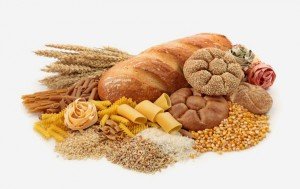Low carb diet and digestive problems
 A short time ago an article came out about which I wrote briefly, about the need, for those who often eat animal proteins, of having to accompany them with foods that contain resistant starch , both vegetable, such as those that in English are defined starchy vegetables (tubers, celeriac , obviously potatoes, but also carrots) and starchy fruit such as unripe bananas and chestnuts, as well as legumes and whole grains. For what reason? Well, I’ll explain it here : for the lazy I summarize by saying that resistant starch protects us from the negative effects of animal proteins, especially red meat. Research today confirms this first , effectively condemning all low carb diets. As we know,protein or ketogenic diets are both low carb diets , i.e. they ban carbohydrates from all grains, legumes, starchy fruit and tubers to a large extent.
A short time ago an article came out about which I wrote briefly, about the need, for those who often eat animal proteins, of having to accompany them with foods that contain resistant starch , both vegetable, such as those that in English are defined starchy vegetables (tubers, celeriac , obviously potatoes, but also carrots) and starchy fruit such as unripe bananas and chestnuts, as well as legumes and whole grains. For what reason? Well, I’ll explain it here : for the lazy I summarize by saying that resistant starch protects us from the negative effects of animal proteins, especially red meat. Research today confirms this first , effectively condemning all low carb diets. As we know,protein or ketogenic diets are both low carb diets , i.e. they ban carbohydrates from all grains, legumes, starchy fruit and tubers to a large extent.
Often all fruit is banned apart from a portion of blueberries or a splash of lemon juice in the water, while the vegetables to be preferred are those with green leaves, i.e. those that contain less carbohydrates. In this way not only are most of the sources of carbohydrates eliminated, but also most of the fibers: this however causes problems for our microbiota , which we commonly refer to as intestinal flora, progressively impoverishing it, and making digestion more difficult. Resulting in a sense of fatigue, continuous nausea, irregularity, swelling and even overweight in the long term , in addition to the decrease in immune defenses.
Dietitians from the National Diet and Nutrition Survey, who posted their survey of the effects of a starch-free diet on femalefirst.co.uk. , they speak for themselves: there can be no lasting weight loss and healthy weight without health. And carbohydrates must make up for at least 50 percent of our daily requirement, thus satisfying our need for fiber.





























+ There are no comments
Add yours